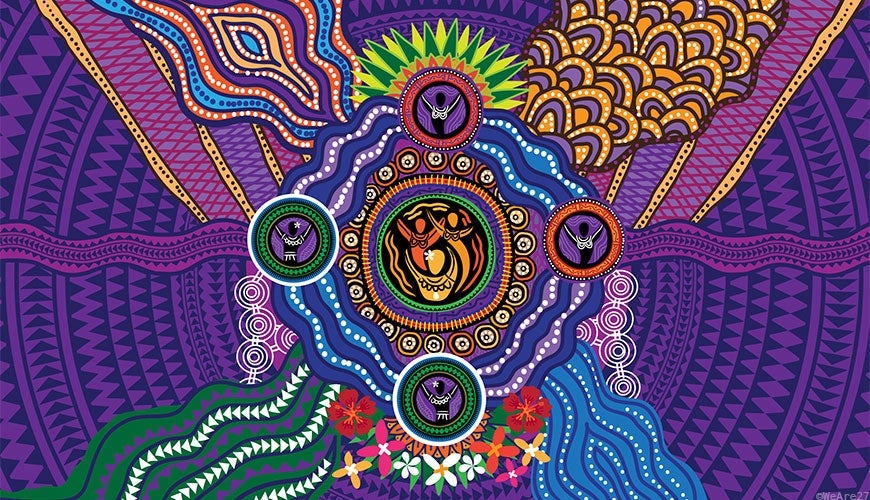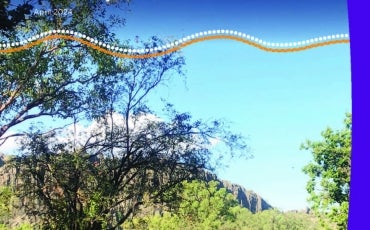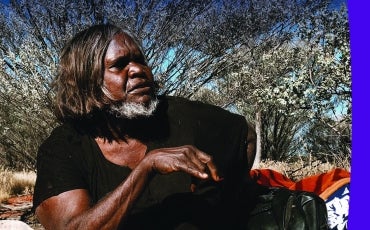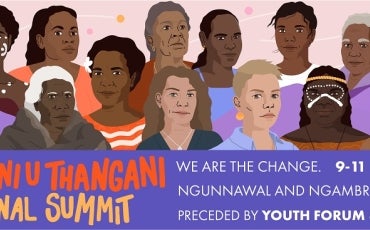Wiyi Yani U Thangani Report (2020)

Also available:
Wiyi Yani U Thangani (Women's Voices)
Securing Our Rights, Securing Our Future Report
Commissioner's foreword
As the first woman to be appointed as Aboriginal and Torres Strait Islander Social Justice Commissioner, I indicated at the start of my term that I would place a strong emphasis on championing the voices of our women, girls, their families and their communities.
I want to promote the efficacy of strengths-based community-driven approaches to addressing Aboriginal and Torres Strait Islander disadvantage, and advocate for the enabling conditions required for women and their communities to exercise agency in decision-making, and in partnering with, and holding government and other parties to account.
This report builds on the legacy of the 1986 Women’s Business Report: the first time in Australian history that Aboriginal and Torres Strait Islander women were consulted nationally. This was our mob talking to each other about our issues, hopes and aspirations, without the intervention and control of others.
I was a young woman at the time, working in my hometown of Fitzroy Crossing in the heart of the Kimberley, when the Women’s Business Task Force set out on their extensive consultations across the nation.
I had been working as a secretary for the Western Australian Aboriginal Legal Service. I had a series of stints on stock camps and was embarking on bringing our Bunuba history together by telling the story of our resistance hero, Jandamarra, through film and story.
In the early 1990s, I was the Chair of our regional resource agency, working with our senior peoples in supporting the establishment and development of remote communities and out-stations on our homelands. Through these experiences, I was becoming very aware of how our work on the ground interfaced with the social, economic and political frameworks of the Australian nation.
The Women’s Business Task Force captured and affirmed my enthusiasm and energy that our work at the community-level was important, not just to our local area, but to broader Australian society. I was inspired.
Since then I have never lost that spirit of self-determination: that our women on the ground know what they are talking about, that they are leaders, survivors, teachers and healers. They carry with them a wealth of inherited, lived and learnt expertise.
Now, as the first woman to become the Aboriginal and Torres Strait Islander Social Justice Commissioner, I remain committed to the intentions of the Task Force in 1986, that our women’s voices need to be elevated to the spaces of decision-making, because what they know matters in forming meaningful and effective policy and legislation. Their knowledge matters, every day, to ensuring the health and wellbeing of our children, families, and communities.
That is why the Wiyi Yani U Thangani engagement process and this report is grounded in the right of Aboriginal and Torres Strait Islander women and girls to self-determination.
A central aim of Wiyi Yani U Thangani is to look beyond the cycles of crisis that have come to characterise Aboriginal and Torres Strait Islander lives, and to define our women and girls in their own image, determined by them.
My hope is that the Wiyi Yani U Thangani engagements and this report will inspire new and older generations of women and girls today, in the same way the Women’s Business Report did for me.
What I do not want, for any of us, is to have to wait another 34 years to be listened to and heard.
In the intervening years since the 1986 Women’s Business Report, our women and girls never met again as a distinct collective.
In 2020, it is certainly time that Aboriginal and Torres Strait Islander women and girls are heard again.
As we finalise this report, all of humanity has been confronted by the COVID-19 pandemic and the global protests for racial reckoning and justice as a part of the Black Lives Matter (BLM) movement.
Coming so soon after the bushfires of 2019–2020, COVID-19 and BLM have caused, I believe, for Indigenous and non-indigenous people, a mass re-evaluation of Australian identity; of our history and the type of nation we want Australia to be. It has helped us to see, in common with one another, what we value most such as the health and wellbeing of our families, communities, the land we live on and our surrounding ecologies.
At the same time, this unprecedented moment in history has exposed systemic failures and deep structural and racial inequalities. These events have shown the extreme vulnerability of those who are most marginalised in our socio-economic systems.
With COVID-19 being transmitted within our national borders, these vulnerabilities were recognised. Australian governments moved rapidly, introducing sweeping measures across our welfare, health and economic systems to protect and save lives across the entire nation.
For the most vulnerable, specific measures and supports were introduced. It was accepted without question that Aboriginal and Torres Strait Islander peoples, at huge risk of a COVID-19 outbreak, needed additional supports.
The decisiveness and rapidity of the response to the COVID-19 pandemic stands in stark contrast to the political inertia and policy incrementalism that Aboriginal and Torres Strait Islander communities have otherwise faced in recent years, despite clear acknowledgement of the scale of challenges faced in our communities.
What the COVID-19 pandemic has proven is that necessary and large-scale change is possible, particularly in moments of crisis.
Whenever we move beyond this time, there is no acceptable ‘normal’ for Aboriginal and Torres Strait Islander peoples to return to, no viable social and economic systems to just ‘snap-back’ into.
As Australian governments look toward recovery and reform, we must implement and secure the measures that save, protect and improve lives. We have to grow and enhance our existence and not return to, what the public is increasingly coming to understand through its own experience as, unacceptable and frightening states of crisis.
I know Australians are ready for systemic and social change that embraces and embeds First Nations cultures and knowledge systems.
Now is the time to re-set and enter a transformative relationship between Aboriginal and Torres Strait Islander peoples and settler Australia, as Indigenous and non-Indigenous peoples alike, in the face of crisis, envisage a stronger, more compassionate and caring nation.
Our women and girls' voices are vital to paving the way for a future I believe all Australians want, deserve and have a right to. Read this report, and listen to their voices.



